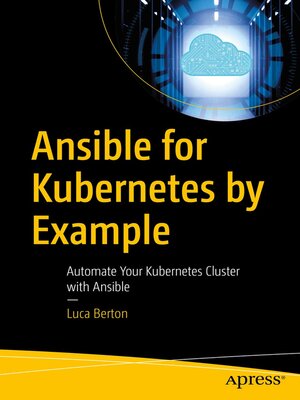Ansible for Kubernetes by Example
ebook ∣ Automate Your Kubernetes Cluster with Ansible · Professional and Applied Computing
By Luca Berton

Sign up to save your library
With an OverDrive account, you can save your favorite libraries for at-a-glance information about availability. Find out more about OverDrive accounts.
Find this title in Libby, the library reading app by OverDrive.



Search for a digital library with this title
Title found at these libraries:
| Library Name | Distance |
|---|---|
| Loading... |
Learn how to automate your Kubernetes infrastructure using Ansible. This book will enable you to automate more tasks and save time with this human-readable platform.
Containerized microservices deployed via Kubernetes allows you to save time, reduce human interaction and errors, and create applications that are more robust. You'll learn how to automate the most redundant activities such as reports, services, the launch of a pod, adding permanent storage, configuring load balancing, and adding or modifying any Kubernetes parameter. You'll also gain an understanding of end-to-end use cases and how advanced cluster automation, such as Helm packages and node states, are evolving.
Each lesson utilizes a specific use-case for the modern Kubernetes cluster and focuses on a single module from the most crucial parameter, complete with code demonstrations. Each code example is battle-proven in real-life with console interaction and verification.What You'll LearnWho This Book Is For
IT professionals who would like a jargon-free understanding of Ansible technology, Windows Systems Administrators, DevOps professionals, thought leaders, and infrastructure-as-code enthusiasts.







